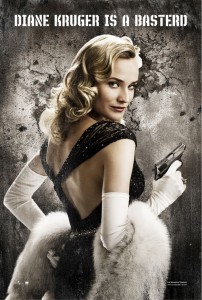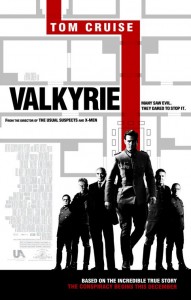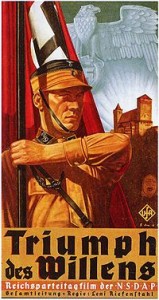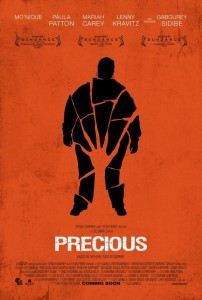Posts Tagged ‘Christoph Waltz’
2009 Cannes Film Festival
2009 Cannes Film Festival Winners
Winners of the five main prizes at the 2008 Cannes Film Festival were as follows:-
Palm d’Or – The White Ribbon Das weiße Band directed by Michael Haneke
Best Director – Brillante Mendoza – for Kinatay
Best Actor – Christoph Waltz for Inglourious Basterds
Best Actress – Charlotte Gainsbourg for Antichrist
Best Screenplay – Mei Feng for Chūn fēng chén zuì de wǎn shàng (Spring Fever) directed by Lou Ye
Source: http://en.wikipedia.org/wiki/2009_Cannes_Film_Festival
85th Academy Awards
85th Academy Awards / The Oscars
24th February 2013
Oscar Winners at the 85th Annual Academy Awards
Best Film – Argo
Best Director – Ang Lee – Life of Pi
Best Actor – Daniel Day-Lewis – Lincoln
Best Actress – Jennifer Lawrence – Silver Linings Playbook
Best Supporting Actor – Christoph Waltz – Django Unchained
Best Supporting Actress – Anne Hathaway – Les Miserables
Best Original Screenplay – Quentin Tarantino – Django Unchained
Best Adapted Screenplay – Chris Terrio – Argo
Best Foreign Language Film – Amour directed by Michael Haneke (Austria)
Best Documentary – Searching for Sugarman
Best Cinematography – Claudio Miranda – Life of Pi
Best Editing – William Goldenberg – Argo
Best Sound Editing – Per Hallberg, Karen Baker Landers – Skyfall
& Paul N. J. Ottosson – Zero Dark Thirty (tie for this Oscar).
Best Original Song – “Skyfall” by Adele – Skyfall
Best Original Score – Mychael Danna – Life of Pi
Best Costume Design – Jacqueline Durran – Anna Karenina
Best Production Design – Rick Carter, Jim Erickson – Lincoln
Source: http://www.oscars.org/
Slave to the Rhythm
Django Unchained
Director: Quentin Tarantino
Cast: Jamie Foxx, Christoph Waltz, Don Johnson, Leonardo DiCaprio, Jonah Hill, Bruce Dern, Kerry Washington, Robert Carradine, Samuel L. Jackson, Walton Goggins, James Russo
Django Unchained can be compared to a three act Southern Opera and whilst Tarantino’s distinctive style comes through, his real intention is to invert the Cowboy myth so associated with the American Wild West, channeling spaghetti Western Sergio Leone films and tackling a very prickly subject of slavery prior to the American Civil War without much sensitivity.
Django Unchained, loosely based on the 1966 Sergio Corbucci Western Django, starts off in Texas in 1858, two years before the outbreak of the American Civil War and features the eloquent and unorthodox Dr King Schultz played with superb panache by Christoph Waltz, who won a Oscar for Best Supporting Actor for 2009’s Inglourious Basterds who frees Django from a chain gang as he needs him to identify three brothers which have a mortal bounty on their heads. Jamie Foxx (Collateral, Ray) is wonderfully cast as Django and throughout the two and a half hour film really displays his range as an actor complimenting the always competent Waltz as the German speaking bounty hunter.
Together Schultz and Django go in search of Django’s entrapped and estranged wife, oddly named Broomhilda, as she was bought as a slave by German immigrants. Broomhilda is now the possession of sadistic cotton plantation owner Calvin Candie, played with flourish by Leonardo di Caprio whose Mississippi plantation aptly named Candieland provides the final act in an utterly bizarre and bloody showdown between Django, Schultz and Candie.
For sheer originality, Tarantino’s films are always enjoyable and never dull, but like Inglourious Basterds and his most famous film Pulp Fiction, along with profanity there is a serious dose of vicious bloodshed. Django Unchained lacks some of the brilliance of the first two films, but the startling sound effects, outlandish scenes and revisionist plot is enough to make Django Unchained Oscar worthy especially the two central performances by Waltz and Foxx. Two criticisms’ of the film is the overuse of racist profanity which the plot revolves around especially being set in the Slave trade of the Deep South and also the film’s considerable length.
Django Unchained has some startling scenes but one got the sense that because of Tarantino’s previous successes, Harvey Weinstein has given Tarantino free reign. Free reign on the subject of the America’s Deep South from Texas to Mississippi and their sanctioning of slavery as a form of economically binding both master and slaves into a hideous socio-geograhic relationship of brutal proportions demonstrated in the cotton and tobacco plantations below the Mason-Dixon line.
Django Unchained has a fantastic musical score and soundtrack along with brilliant sound effects and sound editing especially noticeable in the showdown at Candieland. Tarantino’s old favourite Samuel L. Jackson (Pulp Fiction) is wonderfully cast as Calvin Candie’s butler Stephen and look out for Don Johnson as Big Daddy and of course the versatile Kerry Washington (The Last King of Scotland) who undergoes all sorts of torture as enslaved Broomhilda, Django’s estranged wife. Watch out for a brief appearance by Jonah Hill (Moneyball) as part of inadequate group of Ku Klux Klan members.
Warning this film is not for sensitive viewers and Django Unchained could be Tarantino’s most controversial film to date especially as he recasts the mythical American cowboy as a sharp shooting freed slave from Texas. Yet Quentin Tarantino won the 2013 Golden Globe and BAFTA Awards for Best Original Screenplay for Django Unchained so his talent is definitely acknowledged in both America and Britain.
Circus of Cruelty
Water for Elephants
Water for Elephants is a flamboyant if not old fashioned tale of a man who literally runs away to join the circus. Directed by Francis Lawrence known for his more commercial ventures in Constantine and the Will Smith sci-thriller, I am Legend, Water for Elephants is set during the Great depression in the early 1930s when America was at the height of Prohibition. The films centres on Jacob a young and promising veterinary doctor, and would be graduate of Cornell, whose studies are disrupted by the tragic death of his Polish immigrant parents.
Leaving his childhood home behind Jacob follows the railway line and like many itinerant young men of that decade hops on the nearest train as a free ride towards a brighter future. Except the train is a circus train complete with wild animals, acrobats, a grumpy midget and the translucent star of the circus Marlena, played beautifully by Reese Witherspoon. Jacob shows his useful veterinary skills to Marlena and then to her husband, August a cruel circus master, played with an evil unpredictability by Christoph Waltz.
Robert Pattinson, in between his Twilight saga, left his teeth behind as he plays a simmering Jacob, yet without the full conviction of an actor embracing this characters full complexity and sadness. In the love triangle that ensues between Jacob, Marlena and August, it is Christoph Waltz who really shows his true acting ability as a slightly bi-polar, entirely vicious egocentric circus master who has a penchant for throwing vagrant men off moving trains.
Then again, Waltz did win an Oscar for his brilliant and sinister portrayal of the multilingual ruthless Nazi in Inglourious Basterds; however his danger of becoming the perennial villain is more evident. Both in the disastrous Green Lantern and Water for Elephants, Waltz is cast as the slightly off kilter, sociopathic villain. Reese Witherspoon portrayal of Marlena is fragile and elusive, made infinitely more evocative by the beautiful1930’s costumes and daring scenes with horses and Rosie the elephants, which is film’s main attraction.
Water for Elephants is more about the underlying cruelty to the circus animals that went on unnoticed as the glitzy big top was mesmerizing local towns at the time with acrobatic acts, clowns and lavish spectacle. This cruelty naturally boils over towards the climactic scene of the film, as the circus animals take revenge on their ring leader. Water for Elephants is beautiful to watch, reasonably well acted and entertaining to a point, just short of being an epic.
In the hands of a more inventive director, this film about the circus would have dazzled in the same way that Baz Luhrmann’s Moulin Rouge was superbly over the top and outrageously brilliant, but Lawrence’s take on the circus is shot through with a soft focus nostalgic feel – beautiful, but lacking in resonance. As for Rosie the Elephant she steals the show and not the likes of her handler, Jacob, a slightly dull performance by Pattinson, who has a way to go in achieving credibility and maturity as a successful leading man.
Twisting the Superhero, Sidekick Relationship
The Green Hornet
The Green Hornet a subversive and explosive tale of a Media Mogul’s son Britt Reid who becomes a crime fighter in contemporary Los Angeles twists the usual superhero and sidekick relationship in a script treatment by comedian Seth Rogen, who also shed 18 kilos to play the titular role.
With a pastiche of car gadgets inspired by all the James Bond films from Goldfinger to Goldeneye, Rogen’s portrayal of an anti-superhero does not quite live up to the success of Robert Downey Jnr’s Iron Man franchise, which featured a terrific plot, superb casting and the right balance of action and anticipation.
The Green Hornet is too brash, badly paced and filled with unnecessary explosions, car chases and destruction overshadowing a storyline which if the cameo appearances by stronger actors like James Franco and Tom Wilkinson had been given more screen time, allowing a counterpoint to Rogen’s obsession with his new found superhero status as The Green Hornet and his perplexing relationship with his sidekick, a Chinese martial arts motor mechanic Kato played by Jay Chao.
Whilst The Green Hornet, based on a radio series pokes fun at pop culture and the American obsession with superheroes, the media business and the increasing fascination with wealth and consumerism, the film fails to rise above its popcorn matinee status.
The international cast makes for a confusing motley crue of characters from Chinese star Jay Chou and Austrian Oscar Winner Christoph Waltz, fresh from his Nazi hunting role in Inglourious Basterds, playing the villian Bloodnofsky to Cameron Diaz who clearly portrays the anguish of an actress caught in the wrong film, with a crazy leading man.
The Green Hornet is saved by some clever dialogue by Rogen who also serves as scriptwriter but lacks the solidly plausible storyline of more impressive superhero films from Batman Begins to the Spiderman films. Then who ever said plausibility was required in any tale of a superhero?
As brilliant superhero films go, The Green Hornet dazzles with explosive action scenes but remains a rowdy, comical romp well below par of similar films in this saturated genre.
82nd Academy Awards
Oscar Winners for the 82nd Annual Academy Awards: ~
Sunday 7th March 2010
The 82nd Academy Award Winners
Best Film – The Hurt Locker
Best Director – Kathryn Bigelow – The Hurt Locker
Best Actor – Jeff Bridges – Crazy Heart
Best Actress –Sandra Bullock – The Blind Side
Best Supporting Actress – Mon’que – Precious
Best Supporting Actor – Christoph Waltz – Inglourious Basterds
Best Original Screenplay – Mark Boal for the Hurt Locker
Best Adapted Sreenplay – Geoffrey Fletcher for Precious based upon the novel Push by Sapphire
Best Foreign Language Film – The Secret in Their Eyes by Juan Jose Campanella (Argentina)
Best Film Editing – The Hurt Locker
Best Cinematography – Avatar
Best Costume Design – Sandy Powell – The Young Victoria
Best Visual Effects – Avatar
Best Original Score – UP
Best Original Song – Crazy Heart – The Weary Kind
Best Cinematography – Avatar
*
Revisionist Cinema from Hell
Inglourious Basterds

She is watching us… the Voyeur as Killer
A Revisionist look at World War 2 with all the German angst, French charm and American parody…
Sooner or later Tarantino was bound to approach the territory of the 2nd World War. While there has been a plethora of World War movies since the mid 1940s onwards, many have tackled the War from a purely Euro-American perspective focusing on the Nazi’s simply as the enemy. From Great battle films, like Saving Private Ryan to the more personal and heart-rendering stories of Sophie’s Choice and Schnindlers List and more recently Atonement.

The Rot started from within…
Valkyrie arrived, Tom Cruise’s fascinating yet doomed project about a plot to kill Hitler from within the highest rankest of the Nazi inner circle in 1944. Defiance followed, a superb story of Polish Jewish resistance set in the forests outside Krakow. There was entertainment rumblings from Tarantino that after the Kill Bill films, he was planning a revisionist and slightly parodying version of World War 2…
Cannes Film Festival 2009

Cannes Film Festival 2009 and Inglourious Basterds, Tarantino’s long awaited film featuring a band of Jewish American Nazi scalp-hunters who take revenge on the Nazi’s in German-occupied France in the early 1940s is premiered much to every cineaste’s delight. Basterds is far more than a revenge cult film against Nazi’s, it’s a statement about Cinema being used as propaganda. The references are rife, for as in Pulp Fiction, Tarantino’s best trait is revealed, a rambling but significant knack for quirky dialogue. Except in this film, authenticity dictates –so naturally the French spoke French, the Nazi’s spoke German and the Americans spoke a range of regional accents from Brooklyn to Tennessee slang. Tarantino assembles some fantastic European stars of contemporary cinema, from Til Schwieger to Diane Kruger and Melanie Laurent.
Cinema as Propaganda
Tarantino makes comparisons between Joseph Goebbels – Nazi Minister for Propoganda and the then founder of MGM, Louis B. Mayer, both as masters of cinema and naturally propaganda. More specific are the references to Leni Riefenstahl, who rose to fame in the 1930s as a significant German film-maker churning out the Nazi blueprint for propaganda – Triumph of the Will.

Truimph of the Will
Riefenstahl, was later vilified once the war was over and went onto to become a documentary filmmaker in East Africa. There are also a sprinkling of humorous discussions about the American black athlete Jesse Owens who sparkled at the 1936 Berlin Olympic Games much to Hitler’s dismay. Watch out for a spoof on the British military featuring a contemplative Winston Churchill and a wonderful cameo by Mike Myers whose line, “we will have all the rotten eggs in one basket” is delivered with affected panache.
A French Spaghetti Western Tarantino Style
Basterds opening shots are reminiscent of the early spaghetti Westerns of Sergio Leone – with a scene straight out of The Good, The Bad & The Ugly, except its not a dusty Mexican outback with outlaws escaping bounty hunters, it’s a pastoral scene of a French Farming countryside. This time there is no Sun-Burnt Clint Eastwood in a poncho. Enter Christoph Waltz, the urbane, elegant and lethal multi-lingual Nazi Jewish hunter. Waltz has some of the best dialogue in the film and effortlessly switches from German to French to English in order to ascertain his victims whereabouts. Yet Tarantino presents him as a man simply sent to do an unpleasant task, and one should not judge, but Waltz’s role is crucial to the films wonderful and intricate plot revolving around a cinema outside Paris and a German Film Premiere, where all plans go awry.
Christoph Waltz won an Oscar for Best Supporting Actor following in the psychopathic tradition of Javier Bardem in No Country for Old Men (2008) and Heath Ledger’s Joker in The Dark Knight (2009). Tarantino’s find of this Austrian acting talent has Hollywood virtual blogs a buzzing.
Inglourious Basterds is long, brilliant, bloody and sophisticated with that right dose of European sensibility accurately shredded by an American’s tainted perspective on World War II and more subtly a comment on the Death of original Cinema and more about Film as a nation’s propaganda tool. If you are expecting an action-packed, traditional war film with a clear division of hero and villain, well then you are simply in the wrong movie. Tarantino tantalizes, shrills and insures that any audience seeing the Basterds will feel claustrophobic and trapped in a cinema from Hell.






























